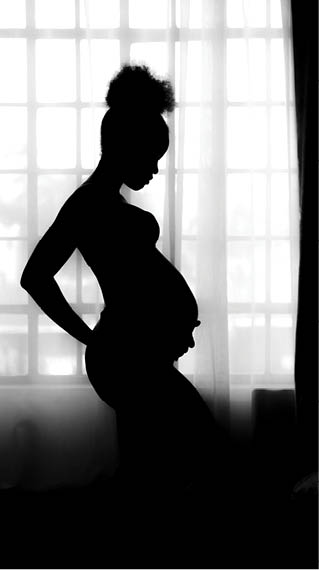Women who experience more stress around the time of conception are twice as likely to give birth to a girl
A study carried out by scientists from the University of Granada (UGR) has revealed that women who experience stress both before becoming pregnant and during conception are almost twice as likely to have a girl as a boy.
- Atletico the biggest losers as Real Madrid, Barcelona collide in El Clasico
- I am a female comedian that performs based on current issues – Zee Pretty
Researchers from the Mind, Brain and Behaviour Research Centre (CIMCYC), the Department of Pharmacology (Faculty of Pharmacy), and the Faculty of Psychology have analysed the levels of cortisol (a steroid hormone that is released in response to stress) in the hair of pregnant women in the period spanning from before conception to week 9 of pregnancy, to determine whether there was any link with the sex of the baby.
A total of 108 women were monitored from the first weeks of pregnancy through to delivery, to record their stress levels before, during, and after conception via the concentration of cortisol in their hair and various psychological tests.
The measurement of cortisol in hair samples taken approximately in week 8-10 of pregnancy showed the concentration of cortisol in the pregnant woman for the previous three months (one month per centimetre of hair growth), meaning that it covered the period preceding and after conception.
Subsequently, the UGR scientists recorded different variables relating to the birth and the sex of the baby.
María Isabel Peralta Ramírez, the main author of this work and researcher at the UGR’s Department of Personality, Evaluation and Psychological Treatment explains: “The results we found were surprising, as they showed that the women who had given birth to girls presented higher concentrations of hair cortisol in the weeks before, during, and after the point of conception than those who had boys.” In fact, these cortisol concentrations in the hair of mothers who subsequently had girls were almost double those who had boys.
There is ample scientific evidence demonstrating the impact of stress on the mother in the processes of pregnancy, birth, and even infant neurodevelopment.
“Specifically, our research group has shown in numerous publications how psychological stress in the mother generates a greater number of psychopathological symptoms during pregnancy, postpartum depression, a greater likelihood of assisted delivery, an increase in the time taken for lactation to commence (lactogenesis), or inferior neurodevelopment of the baby six months after birth,” says Peralta.
All of the existing research tells us about the effect of stress when pregnancy has already occurred. However, few studies have shown the link between stress and the mother-to-be before or during the conception of the baby, the present study being a rare exception. Its findings were recently published in the prestigious Journal of Developmental Origins of Health and Disease.
One possible explanation for the results would be that the activation of the “stress system”–the hypothalamus-pituitary-adrenal gland system–which involves an increase in cortisol secretion, modifies the concentrations of sex hormones at the time of conception.
However, the mechanisms underlying this modification are not clear, because, on the one hand, there is evidence that testosterone could influence the determination of the baby’s sex, since the higher the levels of prenatal stress, the higher the levels of female testosterone.
On the other hand, there is scientific evidence that sperm carrying the X chromosome (which determines that the baby will be female) perform better at passing through the cervical mucus in circumstances of adversity.
Therefore, due to the hormonal changes associated with stress in the mother, these sperm are more likely to be successful in reaching the egg than sperm carrying the Y chromosome (which determines that the baby will be male).
Courtesy: Eureka

 Join Daily Trust WhatsApp Community For Quick Access To News and Happenings Around You.
Join Daily Trust WhatsApp Community For Quick Access To News and Happenings Around You.


